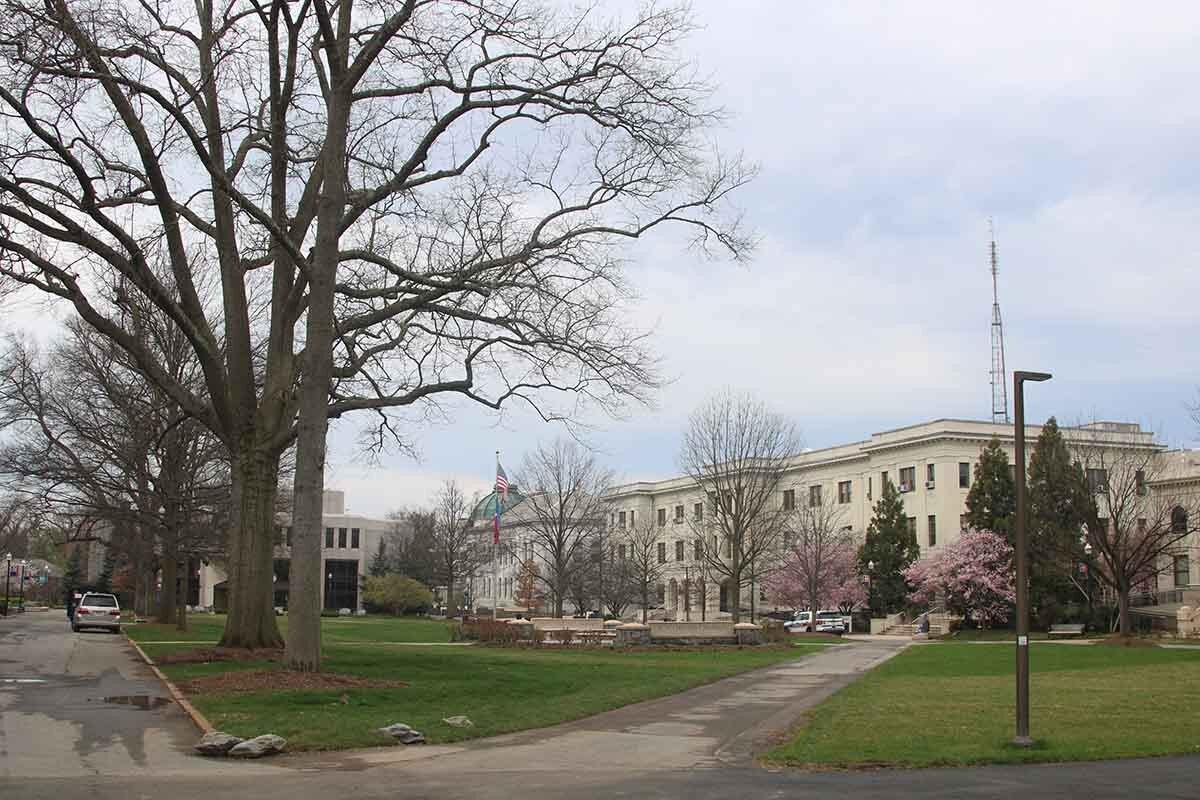Student workers are adjusting to remote jobs as a source of income
Some in-person jobs are available for students in the D.C. area
Cherry blossoms in bloom on an empty campus.
DAN PAPSCUN/THE EAGLE
By Abbie Veitch | Sept. 3, 2020
Students who rely on on-campus jobs are grappling with the challenges of fewer in-person employment opportunities on and around campus this fall; however, they may now apply for remote positions with the University.
AU’s Office of Human Resources announced on Aug. 13 that all students, including those with Federal Work-Study and graduate financial aid stipends, will be eligible to apply and work remote jobs. This announcement comes after some students were told that they would not be eligible if they were not living in the D.C. area.
“This fall, there will be significant remote opportunities for student workers normally working on campus,” AU spokesperson Stacie Burgess said in an email to The Eagle. “Some limited in-person student jobs will continue, such as library support and desk coverage. Student job layoffs are not anticipated at this time.”
Patrick Donoughe, a junior who received a FWS award, said that he lost a resident assistant position and a position with the University Conference and Guest Services because of the shift online. Before finding out that students living outside of the D.C. area could still be eligible for FWS, Donoughe said that he decided to move in with family who live in the DMV, partly due to limited internet access at his home.
Donoughe said that while he wished the announcement that students could telework came earlier, he said the University made the right call.
“This is AU looking out for us. This is AU responding to our needs,” Donoughe said, who is trying to transition a position in the Kogod School of Business to an online format.
Jesse Cross, a junior in the College of Arts and Sciences, is one of the few students who may continue to work on campus in the fall. While he would have been a co-lead for AU’s Zero Waste intern team, also known as the “compost crew,” Cross will likely continue as a grounds intern.
“Instead of doing something I'm super interested in, I'm weeding and mulching,” Cross said. “I'm definitely not complaining about having a job, but it's not as suited for my career interests.”
Benjamin Scheiner, a junior in the Kogod School of Business, also works in facilities on the compost crew as a project manager and a grounds intern on a FWS award. Cross and Scheiner were in charge of organizing hiring for the compost crew interns for the fall, which would have all been FWS positions.
They were in the process of hiring more than 10 students for these positions when the University made the call to move fully online.
“No students on campus means no compost to be collected,” Cross said.
Many students, however, are taking advantage of the available remote jobs to piece together a full schedule and income.
PJ Chandra, a junior in the School of Public Affairs, had three virtual internships this summer. He said that being able to work remotely has allowed him to have access to more opportunities all over the country.
“Yes, things are going to be different,” Chandra said. “But there’s this hidden value in online virtual internships.”
Emmy Goyette, a sophomore in the College of Arts and Sciences, is also working multiple remote jobs, including teaching a virtual fitness class through the fitness center. Goyette said that, while her direct bosses have been supportive and communicative, she wishes that the administration would have been more straightforward with their plans.
Goyette said that the University should have clarified earlier on that students with FWS awards would be able to work remotely and receive compensation.
The University held two virtual FWS fairs on Aug. 26 and Aug. 27. AU is also hosting a virtual Job and Internship Fair on Sept. 16.

